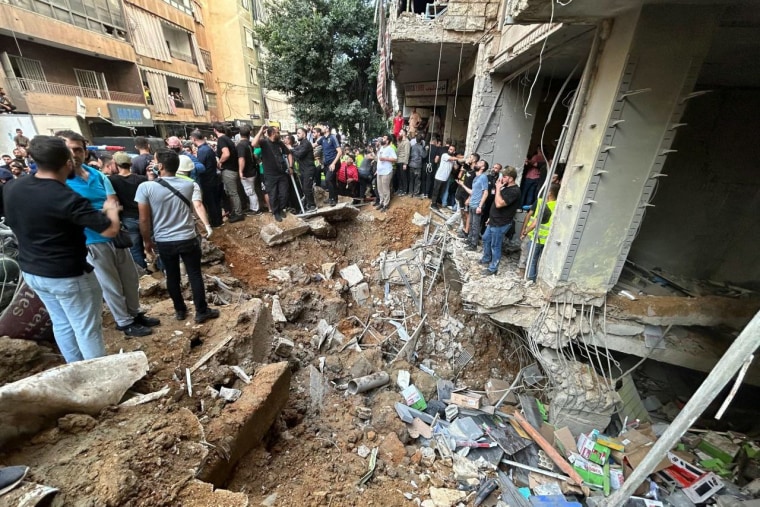Top Hezbollah commanders among 31 killed in Israeli strike on Beirut
Hezbollah was reeling Saturday from an Israeli airstrike that killed two of its senior figures and dozens of other people, intensifying fears of all-out war in the Middle East in the wake of the deadly attacks on the group’s communication devices.
Hezbollah said Ibrahim Akil, who helped establish the militant and political group’s elite Radwan Force, and Ahmed Wahbi, who was in charge of Hezbollah’s central training unit, were killed in the strike Friday on a densely populated suburb of the Lebanese capital Beirut.
At least 31 people were killed in the strike, including three children, Lebanese health minister Firass Abiad told a news conference Saturday. Some 68 people had been taken to hospitals, with two in critical condition, Abiad said.
The strike followed the coordinated detonation of pagers and walkie-talkies belonging to Hezbollah members across Lebanon earlier in the week. Israel has not publicly claimed responsibility for that attack, but Hezbollah has blamed Israel and U.S. officials told NBC News that Israel was behind the explosions.

The United States had been offering a reward of up to $7 million for information on Akil, who the U.S. said was “a principal member” of the group that claimed responsibility for the 1983 bombing of the U.S. embassy in Beirut.
In a statement after the strike Friday, Hezbollah, which the United States has designated a terrorist organization, announced the deaths of 19 of its fighters, including Akil and Wahbi. Though it didn’t say whether all of them were killed in the strike, it brings the number of Hezbollah fighters killed in months of cross-border exchanges since the Hamas-led Oct. 7 terror attacks to 499.
Speaking to the United Nations Security Council on Friday, Lebanese Foreign Minister Abdallah Bouhabib condemned the attacks, saying they “represent a serious, unprecedented event in the history of wars, and they come in the aftermath of Israeli declarations concerning a full-scale war on Lebanon, sending Lebanon back to the Stone Age.”
Israel’s Ambassador to the UN, Danny Danon, addressed the Lebanese foreign minister, telling him “you have allowed a terrorist organization to create a state within your state, bringing ruin to your own people. Instead of blaming us, your peaceful neighbours, you should take action now to restrain Hezbollah and avoid greater escalation.”





